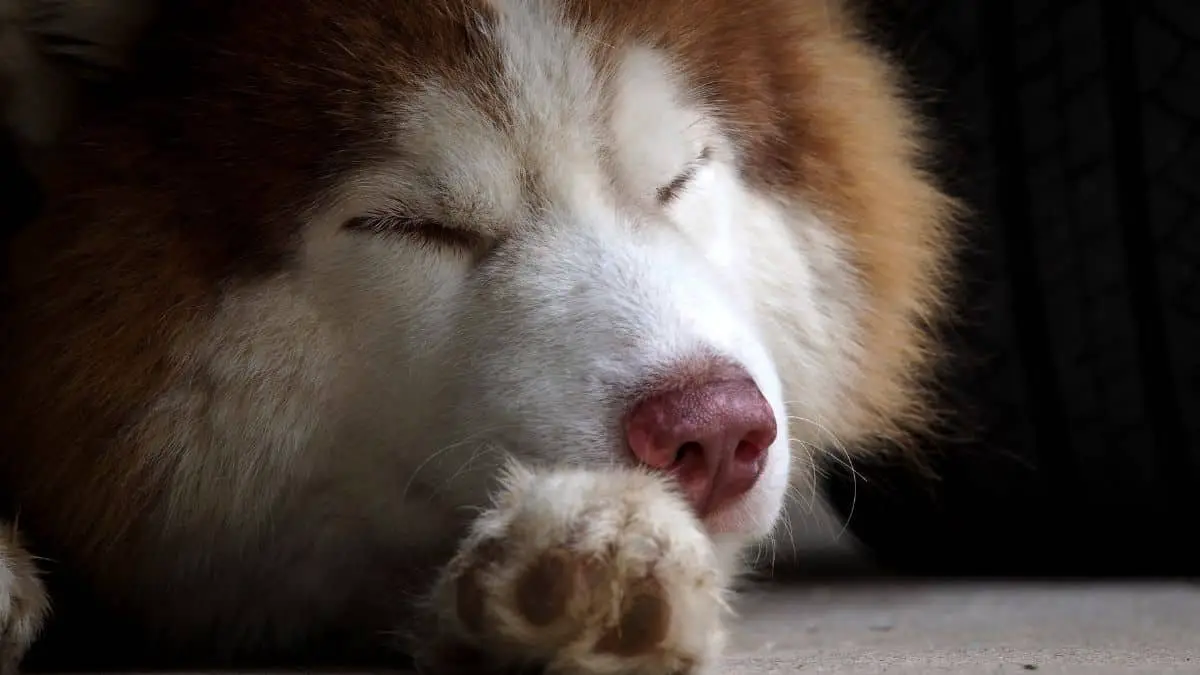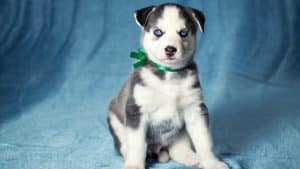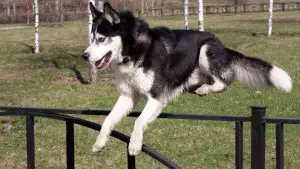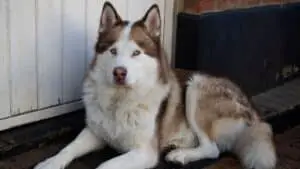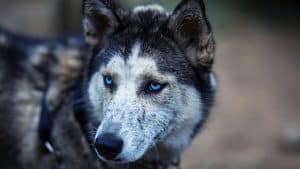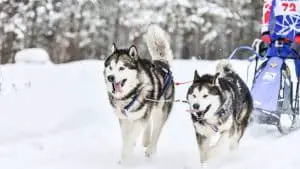Are Siberian Huskies Nocturnal? 4 Things You Should Know
Siberian huskies are famous for their high energy levels. They are known to indulge in physical activities because of their extended stamina, so their sleep is often overlooked. An interesting fact about huskies is that they need a good and sound sleep too.
To regain their strength, huskies need long hours of sleep, and if your husky is not sleeping at night, it can point out an underlying problem. If you have a husky at home and are not aware of its sleep patterns, you should read this article.
Table of Contents
Sleep Requirements Of A Husky Puppy
Husky puppies need vast amounts of sleep, just like all the other puppies. They can sleep for up to 20 hours a day, and you should not be worried about it. They have a faster metabolism rate than the different breeds, and that is why they burn more energy.
They also do not control their energy levels like their adult counterparts, and therefore they use more energy than required. Once they are exhausted, they need these long sleeping hours to revitalize for their next playing session.
Sleep Requirements Of An Adult Husky
The sleep requirements of an adult husky depend on several factors. They can sleep up to 14 hours a day, depending on the amount of physical activity they endure. Let us look at all these factors to understand what contributes to a husky’s good night’s sleep.
Age
The age of your pet matters a lot when it comes to their sleeping patterns. You can see a clear distinction as a puppy needs more sleep than an adult. Your adult will be able to recuperate faster from any physical activity, and therefore they will need less sleep.
Huskies have a pattern that is identical to humans. When they grow out of their prime age, they resort back to sleep for longer durations.
Activity Levels
Siberian huskies are incredibly energetic dogs. They have a minimum requirement of walking for five to ten miles every day. If your husky is continuously involved in these activities like playing with other dogs, there are high chances that you will hear it snore at night.
However, if your pet has succumbed to lethargy, it will have nothing to recover as all the energy will be intact. You should ensure that your husky has vented enough energy so that it has something to gain back from sleeping.
Even if you have an ample space where you can accommodate fun sessions with your husky, it will not play independently. They need someone to play with them. This play buddy’s absence will make them laze around more often and will finally result in frustration.
Medication Taken
Although huskies have a robust immune system, sometimes they are vulnerable to external threats. If your buddy is taking some medication, it is very natural for them to sleep for long.
Medicines have a very dizzy effect on the breed, and that is why they need to wear this drowsiness off. However, if you feel that the medication is more potent than expected, it is best to consult the doctor who prescribed it.
General Wellness
A happy and healthy adult husky will sleep around 12 to 16 hours every day. This number can be altered if there are any specific circumstances.
However, if there are no particular conditions and your husky is still sleeping more than this, getting them checked once is a good idea.
Likewise, if they are sleeping less than this without any substantial reason, it can point out many flaws. They might be frustrated or in pain which is depriving them of a sound sleep. In both cases, you should get professional help as soon as possible.
Size
The distinction of size contributes to the dog’s sleeping pattern. If your husky is big, there are high chances for them to sleep more as they use more energy than smaller huskies.
Why Is My Husky Not Sleeping Well?
Keeping the general notion aside, if your husky cannot sleep at night, there are many possible explanations for this. Check these reasons out, and then take the right measures to correct them.
Diet
One of the most crucial elements contributing to a husky’s sleep cycle is the diet that it takes. If you are not feeding your pet on time, it can cause them to stay up all night. This is simply because of the time their body takes to digest the food.
Their diet might also lack the right nutrients which their body needs. You should ensure that you are feeding your pet on time with all the right nutrients. You must take care of their routine too. If they are continually sleeping late at night, you should take suitable measures to correct this issue.
Lethargy
Lethargy is the biggest enemy of a husky. If your husky does not burn enough energy, it is bound to stay awake from being active. The only possible remedy is to ensure that they are playing during the daytime.
If you have your office during that time, you can opt for dog cafes and nurseries. However, if this is not a possible option, you should arrange for someone who can play with your pet and feed it on time.
Separation Anxiety
Huskies were always bred as companion dogs who were given a place in the family. They are very loyal and loving even if their big size contradicts the claim. They need constant attention and love from their owners.
If you are extremely busy to shell out even a small chunk of your day, your husky might start feeling separation anxiety. They will seclude themselves, and this might cause them sleeping problems. It would be best if you spent some time with your husky to avoid this stage.
Rewards And Treats
The sleeping pattern of your dog is also affected by your sleeping pattern. If you tend to sleep late at night, there are high chances that your dog will too. It would help if you rewarded them for playing with you in the morning instead of at night.
If you keep on treating them at night, they will adopt this practice and look forward to treats. This will disrupt their entire sleep cycle, which has deteriorating effects on their health.
Anxiety
Anxiety in dogs is a widespread phenomenon. Your dog might be anxious about a particular sound or an image. This can cause restlessness which will stop them from attaining a night of sound sleep. You should monitor their actions, and in case you find any evident sign, you must find the root of this cause to eliminate it.
How To Get My Husky To Sleep Properly?
You have read about some common issues that can disrupt the sleeping patterns of your buddy. You should be prepared for these situations by equipping yourself with the right techniques to correct their nocturnal behavior. Here are some of the ways that will help your pet sleep better at night!
Mental Stimulation
Mental stimulation is as essential as physical exercise for your husky. The best way to involve their mind into something is by giving them a chewy or a bone. Their teeth and jaw’s constant movement will keep their mind engaged and eventually tire them out.
Many companies have come out with various other toys and treats. You can check them out to find the perfect fit for your husky.
The Right Environment
Huskies need the right environment to relax and sleep. You must ensure that they have a comfortable surface to rest their head. The room should not be brightly lit up, and it will be great if you could eliminate loud sounds.
Huskies prefer places that are cool and well ventilated for their sleep requirements.
Sleeping Alongside Them
It is not the best practice to sleep alongside your dog every night, but you can try this out until they gauge themselves into the right routine. This will help if your dog has been facing separation anxiety and will feel more comfortable sleeping with someone around.
You can also try keeping a bowl full of water if they feel thirsty at night.
Professional Help
There might be times when it will be difficult for you to comprehend the actions of your husky. In these cases, it is best to take it to your designated veterinarian. They will be able to observe their activities quickly. Their observation will also lead to the right course of action to correct these anomalies.
Final Words
Siberian huskies are not nocturnal in a general outline. You should always be vigilant around them and ensure that their routine is not hampered due to external factors.

